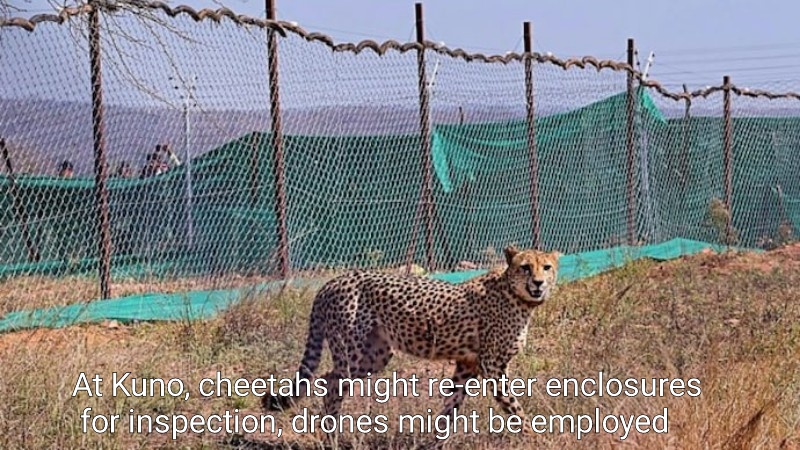
Officials have stated that all radio-collared free-ranging cheetahs at the Kuno National Park (KNP) in Madhya Pradesh may be returned to their enclosures for closer inspection and that drones may be used to track their activity in the wild.
The National Tiger Conservation Authority (NTCA) had stated on Sunday that media claims linking the big cats’ demise to things like radio collars were based on ‘speculation and hearsay, without scientific evidence.’
Nevertheless, some specialists who were instrumental in the cheetah reintroduction project admitted that a male cheetah from South Africa died from an infection brought on by the usage of a radio collar.
A representative who attended the Monday meeting of the Cheetah Project Steering Committee stated: ‘All radio-collared cheetahs could be brought back to their enclosures for close monitoring.’
Another specialist from South Africa, according to the official, would visit the KNP on Tuesday to offer crucial insights on cheetah observation and care.
The possible use of drones outfitted with radio collars for observing cheetahs in hilly terrain or during bad weather, such as the monsoon season, was also mentioned during the meeting.
The Indian government has been asked by South African specialists to keep them updated on the inquiry into the cheetah deaths, any additional steps that may be taken, and any relevant developments.
One of those working on the cheetah project informed the committee that the 50% founder population decline within the first year of the animals’ release into the wild is acceptable.
The experts emphasised that South Africa has not yet had a radio collar-related problem and that creative management strategies will be required to stop such fatalities.
They underlined the value of trading metapopulations from southern Africa and India to guarantee long-term genetic and demographic sustainability.

Post Your Comments